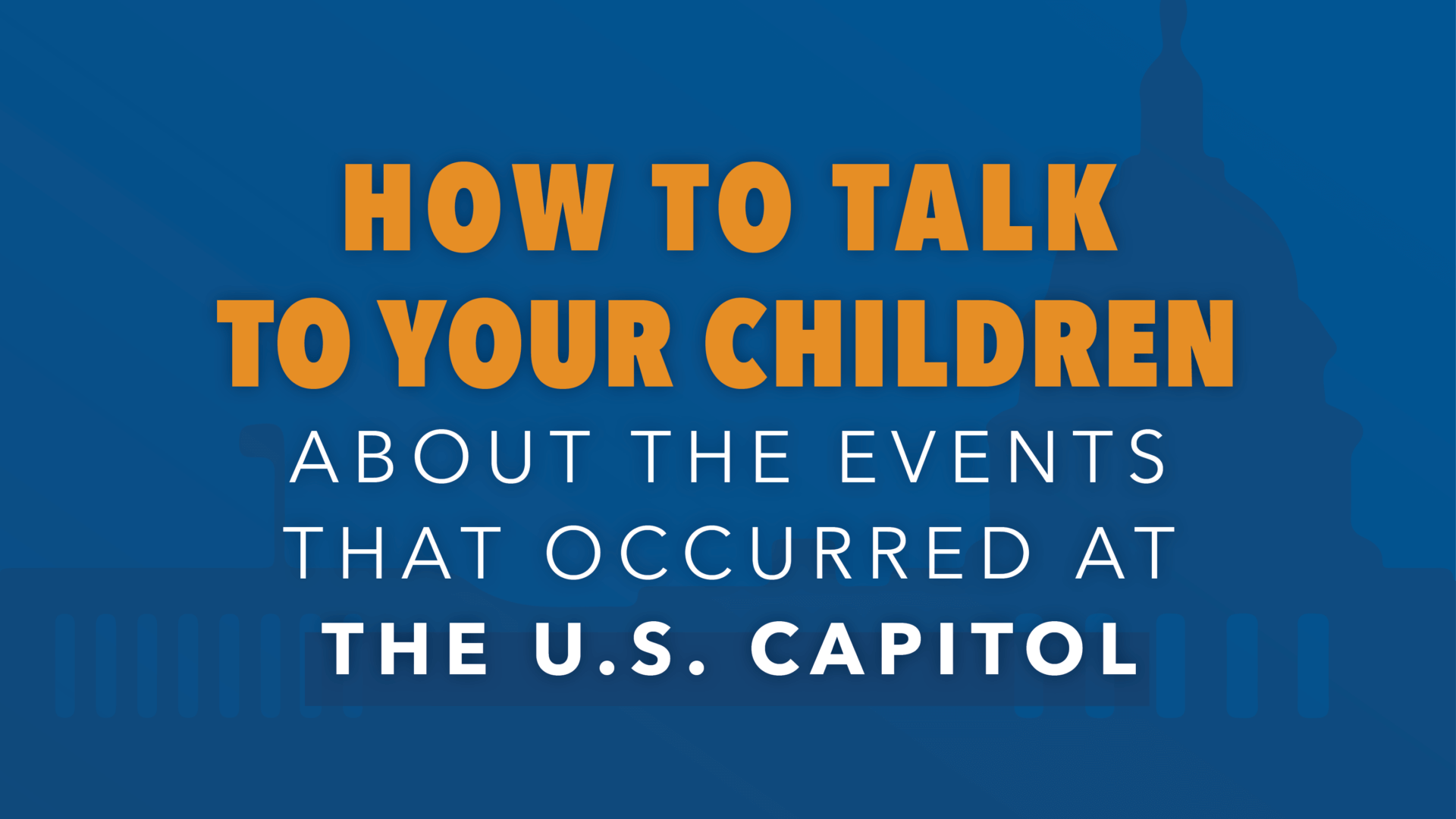Written by Erica Prime, M.A., LLP, CSP, parent and lead psychologist at Bradford Academy, Dove Academy, Four Corner Montessori Academy and Macomb Montessori Academy with the Detroit Institute for Children
As adults, many of us are feeling fear, anger, sadness, and uncertainty in the wake of the attack on the U.S. Capitol. As the evening of January 6th progressed, many families gathered around their TVs, in disbelief, as they watched the chaos and violence that occurred in Washington DC. As a result, many of us are now experiencing a range of emotions including fear, anxiety, and sadness. Undoubtedly our children are also experiencing similarly strong emotions and may have questions about those events. Here are some ways that parents and educators can begin to answer the questions that children may have and ease their anxiety.
Tell the simple, honest truth
It is tempting for parents and educators to want to explain all of the day’s events and include the details, however, it is important to try to answer only the questions that your children have asked without providing extra information or details that they might not be interested in and may not be ready for. Conversely, it may be tempting to try to protect your children from the situation by not discussing the events or not telling the truth. That is not a good approach because kids may get information from their friends and siblings, and will then be left to their own devices to make sense of the chaos.
Consider initiating the conversation about the events and asking your children what they know, determining what they want to know, and asking how they are feeling. Then, it is helpful to repeat your understanding of the feelings that they have shared and to validate those feelings. Try to answer the questions that they have asked with short, simple, truthful, and developmentally appropriate answers, admit when you don’t know an answer, and offer to get information for answers that you don’t have. Finally, let your children know that they can come to you with any questions or feelings that may come up and ensure that you are there for them.
Let your children know that they are safe and try to help them manage their anxiety
In the wake of a traumatic event, it is normal for kids to wonder if they are safe. Anxiety is a natural part of the human condition and learning how to effectively manage anxiety is an important life skill. Parents and educators can use this as an opportunity to model appropriate ways to manage anxiety for their children.
It is important to ease children’s fears about their safety by normalizing their feelings and letting them know that fear is a normal emotion in response to these types of events. It may also be beneficial to share your feelings and explain how you handle these feelings (pray, talk with friends, write about feelings, exercise, etc.). Additionally, it may be helpful to show kids a map to demonstrate that they are quite a distance from the events and that they are safe.
Let the kids help create solutions and determine how to move forward
Anxiety is often the result of the feeling of a loss of control. It may be helpful to give children a returned sense of control by asking them to help come up with some steps that will help them feel safer and at ease. Brainstorming ideas with your child and then executing some of those ideas will help them feel empowered, and allow them to focus on positive solutions as opposed to focusing on the negative events.

